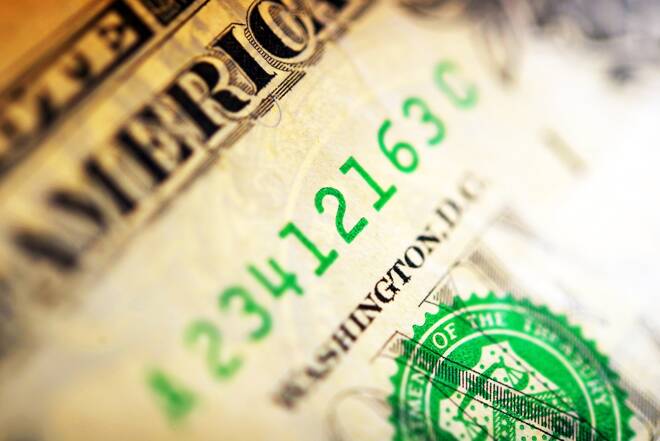Advertisement
Advertisement
Dollar Slumps as Risk Appetite Rebounds
By:
NEW YORK (Reuters) - The dollar fell across the board on Thursday as improved risk sentiment in global financial markets wiped out its gains in the previous session after the U.S. Federal Reserve flagged plans to dial back its stimulus this year.
Investors’ risk appetite improved after Beijing injected fresh cash into its financial system ahead of an $83.5 million bond coupon by embattled property giant Evergrande, at risk of becoming one of the world’s largest-ever corporate defaults.
Worries about Evergrande’s payment obligations and what systemic risks to China’s financial system the property giant’s difficulties pose have weighed on global financial risk sentiment in recent sessions.
“Commodity currencies are broadly higher while havens are weaker, leaving the USD trading generally lower after a firm close following the FOMC (Federal Open Market Committee),” Shaun Osborne, chief currency strategist at Scotiabank, said in a note.
The U.S. Dollar Currency Index, which measures the greenback against a basket of six rivals, was 0.5% lower at 93.037. The index, which had risen 0.25% on Wednesday, was on pace for its biggest daily percentage drop in a month but remains close to the near 10-month high touched in late August.
The offshore Chinese yuan strengthened versus the greenback at 6.4599 per dollar.
The dollar found little support from data that showed the number of Americans filing new claims for jobless benefits unexpectedly rose last week amid a surge in California.
Thursday’s improved mood boosted risk-sensitive commodity currencies, with the Australian dollar rising 0.9% and the New Zealand dollar up 1.0%.
The improved risk-appetite was reflected in Wall Street’s major equity indexes, with the S&P 500 on track for a gain of more than 1% and its largest two-day percentage gain since late July.
On Wednesday, the Federal Reserve said it will likely begin reducing its monthly bond purchases as soon as November and signaled interest rate increases may follow more quickly than expected.
While positive for the dollar, the boost from the Fed’s announcement was undercut by hawkish messages from several central banks in Europe, and as Norway became the first developed nation to raise rates.
Norway’s crown jumped to a 3-1/2 month high versus the euro on Thursday after the central bank raised its benchmark interest rate and said more hikes will follow in the coming months.
Sterling extended its rise on Thursday after the Bank of England said two of its policymakers had voted for an early end to pandemic-era government bond buying and markets brought forward their expectations for an interest rate rise to March.
In emerging markets, the Turkish lira plummeted to a record low after a surprise interest rate cut of 100 basis points to 18% that came despite inflation hitting 19.25% last month
Meanwhile, bitcoin extended its recovery from a sharp fall earlier this week, rising 2.42% to a 3-day high of $44,642.78.
For a look at all of today’s economic events, check out our economic calendar.
(Reporting by Saqib Iqbal Ahmed and Chuck Mikolajczak; Additional reporting Sujata Rao and Saikat Chatterjee in London and Tom Westbrook in Singapore; Editing by Bernadette Baum, Will Dunham and Hugh Lawson)
About the Author
Reuterscontributor
Reuters, the news and media division of Thomson Reuters, is the world’s largest international multimedia news provider reaching more than one billion people every day. Reuters provides trusted business, financial, national, and international news to professionals via Thomson Reuters desktops, the world's media organizations, and directly to consumers at Reuters.com and via Reuters TV. Learn more about Thomson Reuters products:
Latest news and analysis
Advertisement
